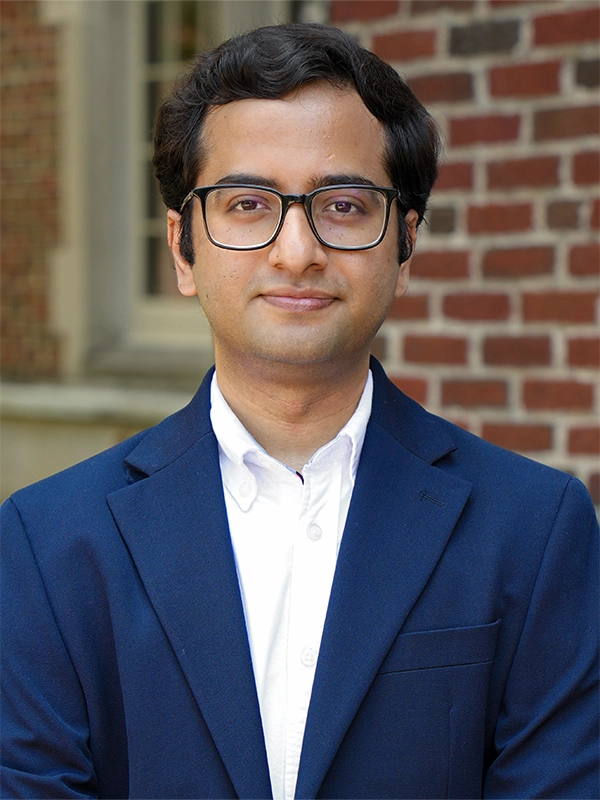Sayan Banerjee

Sayan Banerjee
Assistant Professor
Sayan Banerjee is an assistant professor in the Department of Chemistry at the University of Tennessee, Knoxville, beginning in fall 2025. He earned his PhD from the University of Pennsylvania under the mentorship of Professor Andrew M. Rappe (2018–2023). For his research, he received the ACS Computers in Chemistry Graduate Student Award and the ACS Catalysis Division Graduate Student Travel Award at the fall 2023 ACS meeting. While at Penn, he was also named a Vagelos Institute for Energy Science and Technology Graduate Fellow, collaborating with Professor Thomas E. Mallouk—an experience that inspired his transition to experimental science during his postdoctoral work. From 2023 to 2025, Banerjee served as a Resnick Postdoctoral Scholar at Caltech, working with Professor Jonas C. Peters. His academic journey has provided him with a unique perspective on the interplay between computational simulations and laboratory experiments.
At UT, the Banerjee Group will focus on building predictive chemical theories to address global challenges in energy and sustainability. Working at the intersection of theoretical chemistry, machine learning (ML), and materials science, the group targets complex problems including the electrification of the chemical industry, sustainable recycling, and quantum materials. As part of the Science-Informed AI cluster at UT, their efforts will involve creating physical chemistry-aware ML models to accelerate the discovery of functional materials for catalytic and optoelectronic applications.
Research Interest
- Theoretical Chemistry
- Artificial Intelligence/Machine Learning
- Catalysis
- Electrochemistry
- Quantum Materials
The Banerjee Group aims to drive breakthroughs in energy-efficient technologies and advances chemical theory, contributing to global sustainability efforts. Fundamental limitations imposed by chemical and physical principles hinder the exploration of new materials and molecular chemistry. The recent growth in artificial intelligence (AI) is particularly well-suited to addressing this grand challenge. Toward this end, research in the Banerjee Group seeks to answer:
- What unexplored design spaces can help overcome the known fundamental limitations in chemistry?
- What new theories are required to enable these discoveries, and how can AI facilitate this process?
Additionally, it is possible to envision overcoming the limitations of a single chemical system by designing complex multicomponent systems in which each component works synergistically to compensate for the limitations of individual systems. The group focuses on:
- Developing predictive theories to design multicomponent chemical systems.
- Understanding how these multicomponent systems respond to changing conditions, such as variations in electrode potential.
Specific research:
The group applies the developed theoretical methods to areas such as catalysis, electrochemistry, recycling technologies, and novel quantum processes. The primary focus areas include: (a) electrification of the chemical industry, (b) sustainable recycling, (c) photovoltaics, and (d) discovery of quantum materials. To address challenges in these fields, the group develops analytical theory, mathematical representations compatible with machine learning (ML) algorithms, and ML-based force fields. Additionally, the group harnesses the potential of AI/ML to discover new materials with targeted properties and to model complex, multivariable chemical processes that are otherwise difficult to simulate.
What’s next?
The group’s central focus is to support its members — including undergraduate, graduate, and postdoctoral scholars — in achieving their individual goals. Group members will gain expertise in developing chemical theory, computational chemistry and materials science methods (such as DFT and molecular dynamics), and state-of-the-art AI/ML algorithms. This training will prepare them for both academic careers and R&D positions in industry. Undergraduate members will receive mentorship to gain early research experience, equipping them to apply for graduate school. Graduate students will be prepared to pursue postdoctoral positions or join dynamic R&D roles in industry and beyond. Postdoctoral scholars will receive extensive guidance and support in their faculty job applications.
Education
Postdoctoral Scholar, California Institute of Technology (2023-2025)
Ph.D., University of Pennsylvania (2018-2023)
M.Sc., Indian Institute of Technology Bombay (2016-2018)
B.Sc., Jadavpur University (2013-2016)
Awards
Vagelos Institute for Energy Science and Technology graduate fellowship (2021-2022)
ACS Catalysis division graduate student travel award, ACS Fall 2023
ACS COMP graduate student award for research excellence, ACS Fall 2023
Selected Publications
- Banerjee, S.; Hawthorne, N.; Batteas, J.; Rappe, A. M. “Two-legged Molecular Walker and Curvature: Mechanochemical Ring Migration on Graphene” J. Am. Chem. Soc. 2023, 145, 49, 26765–26773
- Banerjee, S.; Kakekhani, A.; Wexler, R. B.; Rappe, A. M. “Surface Reconstruction of Nickel Phosphides under Electrochemical Environment and Activity toward Hydrogen Evolution Reaction” ACS Catalysis, 2023, 13, 4611-4621
- Behrendt, D.*; Banerjee, S.*; Clark, C.; Rappe, A. M. “High-throughput computational screening of bioinspired dual atom alloys for CO2 activation” ” J. Am. Chem. Soc. 2023, 145, 8, 4730–4735 (*equal contribution)
- Banerjee, S.; Rappe, A. M. “Mechanochemical Molecular Migration on Graphene” J. Am. Chem. Soc. 2022, 144, 16, 7181–7188
- Banerjee, S.; Kakekhani, A.; Wexler, R. B.; Rappe, A. M. “Mechanistic insights into CO2 electroreduction on Ni2P: Understanding its selectivity toward multi-carbon products” ACS Catalysis 2021, 11, 11706-11715
- Banerjee, S.; Sreenithya, A.; Sunoj, R. B. “Machine Learning for Predicting Product Distributions in Catalytic Regioselective Reactions” Phys. Chem. Chem. Phys. 2018, 20 (27), 18311–18318